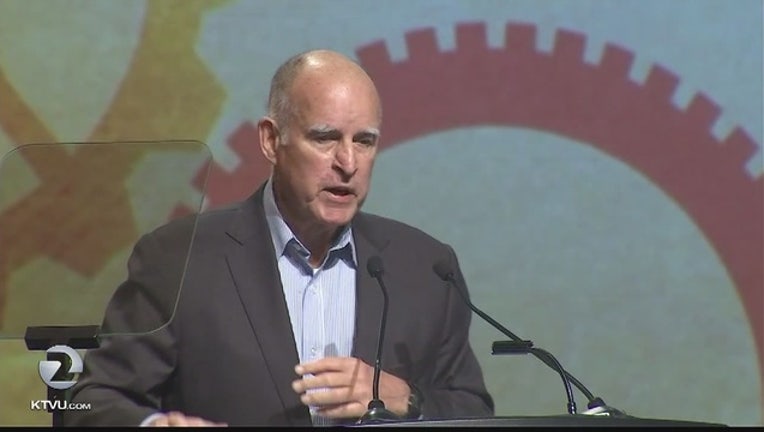Governor signs $125 billion budget boosting education funds

By JONATHAN J. COOPER
Associated Press
SACRAMENTO, Calif. (AP) -- Gov. Jerry Brown signed a $125 billion California budget Tuesday that gives doctors and dentists a raise while increasing funding for education and social services.
For the second consecutive year, Brown did not use his line-item veto authority to cancel spending approved by lawmakers.
The budget boosts money for K-12 schools and community colleges by $3.1 billion and makes a series of reforms to the University of California and California State University systems, including giving lawmakers more oversight of the UC president's budget.
It also directs the UC system to add 1,500 more slots for in-state undergraduate students and 500 more spaces for graduate students.
Low-income Californians on Medi-Cal, the state's Medicaid program, will get improved dental and eyeglass coverage, and a tax credit for the working poor will be significantly expanded.
"This budget provides money to repair our roads and bridges, pay down debt, invest in schools, fund the earned income tax credit and provide Medi-Cal health care for millions of Californians," Brown said.
The governor negotiated the spending plan with Assembly Speaker Anthony Rendon and Senate President Pro Tem Kevin de Leon, both Los Angeles-area Democrats.
Lawmakers slipped in unrelated provisions, including rules for the state's budding marijuana industry and an attempt to quash the growth of federal immigration detention. The budget also changes the rules for removing lawmakers from office to help Sen. Josh Newman, a Fullerton Democrat facing a recall.
During the legislative debate, Republicans said the budget fails to adequately prepare for a recession and reneges on promises to voters, who approved a tobacco tax increase last year intended to improve access to health care. At Brown's insistence, much of that money will instead pay for normal growth in the Medi-Cal program.
Brown's signature allows state agencies to keep operating for another year after June 30.
The $125 billion figure reflects general fund spending and is up 2 percent from the budget Brown signed a year ago. Including spending from bonds and special funds, over which lawmakers have less control, the budget is $183 billion, up 7 percent from a year ago.

